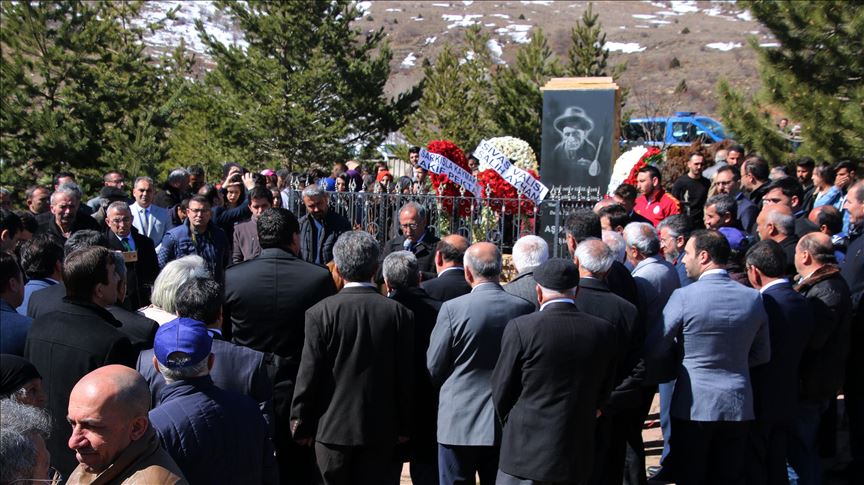Asik Veysel: Turkish minstrel of the 20th century
Almost half a century since his death, Asik Veysel's songs and poems still touch the hearts of listeners

ANKARA
Turkey on Thursday remembered Asik Veysel, one of its most prominent early 20th-century folk poets and singers, who passed away 46 years ago today.
Veysel Satiroglu, or Asik Veysel, was born in Sarkisla, a town in the central Anatolian province of Sivas, on Oct. 25, 1894. He lost one of his eyes at the early age of seven due to smallpox, then a serious disease and one which also claimed two of his siblings.
Misfortune continued for Veysel, as he lost his other eye in an accident, depriving him of sight completely. But blindness did not prevent Veysel from contributing to life and people, yet in
Saddened by his son's health woes and loneliness, his father Ahmet bought him a baglama, an indigenous long-necked stringed instrument which would later become Veysel's greatest companion.
With passion and a love for traditional Turkish songs and poems, Veysel learned how to play the baglama and sing, then devoted himself wholeheartedly to the Anatolian Ashik tradition, which is a bard tradition in Turkey that was common through the mid-20th century.
When Veysel turned 20 in 1914, that same year saw the start of World War I, when his friends joined the military, he stayed home due to blindness, all alone with his baglama.
Years later, in 1930, Veysel met Ahmet Kutsi Tecer, an education official in Sivas, an event which was a turning point in his life. He was discovered by Tecer after performing in a festival of folk poets, after which Veysel began to travel across Turkey to perform his art.
Veysel found work as a baglama teacher in a couple of village schools in Sivas, and his meetings with intellectuals in the training institutions contributed to Veysel's poetic abilities as well as theirs.
Influence beyond his passing
In the mid-1960s, the Turkish parliament allocated a monthly salary to Veysel in return for his contributions to Turkish and national solidarity.
On March 21, 1973, Veysel died of lung cancer in his house where he had been born in Sivas. Now the house serves as a museum, attracting tourists interested in Veysel's life and traditional Anatolian culture.
In the three books of
In one of his poems, Veysel wrote: "Kurdish, Turkish, or Circassian / They are all children of Adam / Together they become martyrs, veterans / What would be wrong with that? / Have a look at the Bible, Koran / Worthy all four [holy] books are / Discriminating and looking down on / What a shame that is."
"Your beauty would be utterly worthless if it wasn't for my love for you," he says in one of his songs. In one of his best-known songs, Veysel refers to death, saying: "I'm on a long and narrow road, I walk day and night."
Veysel's influence on Turkish music culture flowered in the 1970s as renowned Turkish singers, most notably Fikret Kizilok, Selda Bagcan, and Humeyra, began to cover his songs and poems.
His music and
Veysel was also a source of inspiration for Joe Satriani, one of the world’s greatest electric guitar virtuosos. Satriani included two tributes to the Turkish bard, Andalusia


